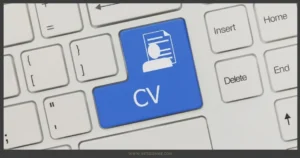What Makes a Good Abstract?
Are you about to prepare a presentation and need help writing an effective abstract? This guide will walk you through the basics of producing an outstanding abstract, no matter the topic. From understanding an abstract to structuring it correctly, this article will provide you with the know-how needed to draft a powerful summary for your presentation. So read on for step-by-step instructions on how to craft an outstanding abstract!
What is an Abstract?
An abstract is a summary of your presentation. It should be clear and concise, giving the reader an overview of your presentation. An abstract will help to make sure that your presentation is well-organized and focused, and it will also help you to plan your time wisely.
Why Are Abstracts Important?
An abstract is a summary of your presentation. It should be brief – usually no more than 200 words – and give the audience an overview of what you will be discussing in your presentation.
Abstracts are important because they help to ensure that your audience understands the key points of your talk, and they can also help to promote your talk to potential attendees. If your abstract is well-written, it will pique the interest of potential listeners and persuade them to come to your talk.
What to Include in an Abstract
When you are crafting your abstract for a presentation, there are key elements to include to make it effective. First, start with a summary of your presentation topic. This will help the reader understand what your presentation will be about and why it is important. Next, provide some background information on the subject matter. This will set the stage for your presentation and give the audience some context for what you will discuss. Finally, end with a brief statement of your conclusions or results. This will engage the reader and leave them wanting to know more about your topic.
How to Write an Effective Abstract?
An abstract is a short, single-paragraph summary of your presentation. It should include the following:
- The problem you are solving or the question you are addressing
- The methods you used to solve it or answer the question
- Your results or conclusions
To write an abstract:
- Start by brainstorming what information you want to include.
- State the problem or question you are addressing in the first sentence.
- Describe the methods you used to solve the problem or answer the question.
- Present your results or conclusions.
- Keep your abstract short and focused; it should be at most one paragraph long.
Best Practices
When you write an abstract for a presentation, you want to ensure it is effective. Here are some best practices to follow:
- Keep it short and sweet: An effective abstract should be short and to the point. It should give the reader a general overview of your presentation without going into too much detail.
- Be clear and concise: An effective abstract should be clear and concise. It should be free of jargon and technical language.
- Make it enjoyable: An effective abstract should be interesting. It should grab the reader’s attention and make them want to learn more about your topic.
Tips & Tricks for Writing an Engaging Abstract
Whether you are submitting a paper for publication or preparing a presentation for an academic conference, an engaging abstract is essential to the success of your work. Here are some tips and tricks for writing an effective abstract:
1. Keep it short and sweet. The ideal length for an abstract is between 200 and 300 words. Any longer, and you risk losing the attention of your reader or audience.
2. Get to the point. The first sentence of your abstract should state your research’s primary purpose or hypothesis in a clear, concise way. Try to be clever and Salesy. Just get straight to the point.
3. Make sure it is well-written. An effective abstract is well-written and free of grammar and spelling errors. It should also flow smoothly, without choppy sentences or awkward phrasing. Take the time to proofread your work before submitting it or presenting it.
4. Use active voice whenever possible. Abstracts should be written in an active voice whenever possible, making for more concise, direct writing. For example, “We conducted a study to test the hypothesis that…” sounds better than “A study was conducted to test whether…”
5) Use keywords judiciously. For your abstract to be easily searchable by potential readers or listeners, choose keywords wisely and use them throughout your summary without going overboard – a couple of strategically placed keywords will do the trick!
How Your Audience Will Receive Your Abstract
Your audience will receive your abstract in one of two ways: through a printed program or online. If you submit your abstract to a conference, the organizers will likely post it online for attendees to review prior to the event. Otherwise, if you are giving a talk at a local event or meetup, you must print out copies of your abstract and distribute them to your audience beforehand.
When writing your abstract, remember that it should stand on its own and give readers a clear idea of your presentation. Be sure to include the main points you plan to cover and use language that is easy to understand. Only jargon and technical terms if you are confident your audience will be familiar with them.
Your goal is to make an excellent first impression and encourage people to attend your talk. So take some time to craft an effective abstract that accurately reflects the content of your presentation.
In conclusion, an effective abstract is key to a successful presentation. By following our step-by-step guide to writing one, you should craft an abstract that will capture the interest of your audience and give them an insight into what they can expect from your talk. Remember, having a good structure and including relevant keywords are essential components for ensuring that your abstract stands out from the crowd. Good luck!
- Cognate Strategies in Business Writing

- What are the main features of a good CV?

- The Five Contexts of Communication

This article is written by:
Our professional writers and editors are passionate about sharing high-quality information and insights with our audience. We conduct diligent research, maintain fact-checking protocols, and prioritize accuracy and integrity to the best of our capacity.
You can cite our articles under the author name "Netizenme"








